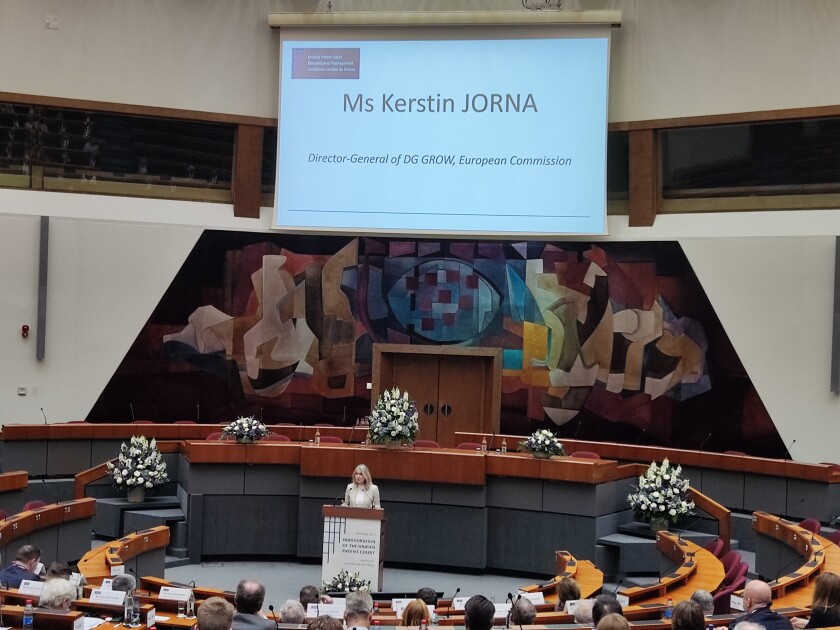The most senior judge of the Unified Patent Court has sharply criticised the European Commission’s draft standard-essential patent reforms.
Klaus Grabinski, chief judge of the UPC Court of Appeal, said he feared the draft SEP regulation, published last month, was not currently compliant with the EU Charter of Fundamental Rights.
Speaking at the formal inauguration of the UPC at the Hémicycle in Luxembourg today, May 30 – which Managing IP is attending – Grabinski said he felt obliged to comment on the plan.
The German judge said he was concerned that SEP owners would have to register their patents at the EUIPO before they could bring an infringement action at the UPC.
“I fully support the commission’s aim to enhance transparency, but access to justice is a core fundamental right,” he said.
Grabinski questioned why SEP owners should not be able to bring infringement actions in the EU while they could in the UK and China.
Under the commission’s draft regulation, patent owners would have to register their SEPs at the EUIPO, which would carry out essentiality checks and determine fair, reasonable, and non-discriminatory (FRAND) royalties.
They would be unable to bring infringement actions for those patents until the end of that process, which could take up to nine months.
But SEP owners would still be able to seek “provisional injunctions of a financial nature” while the EUIPO process was ongoing.
SEP owners had seen the UPC as an attractive option, mainly thanks to the prospect of Europe-wide injunctions.
But it’s unclear what role the new court will play in the future of global SEP litigation if the commission’s plan is realised.
“I have no doubt that the regulation will be fully compliant with the EU Charter of Fundamental Rights after it has gone through the [full] legislative process,” Grabinski added.
Kerstin Jorna, head of DG Grow – the EU body that drew up the proposal – also gave a speech but did not comment on Grabinski’s remarks.
Jorna spoke instead about the importance of intellectual property to the EU single market and encouraged all member states to join the unitary patent system.
The UPC will open on Thursday, June 1.











